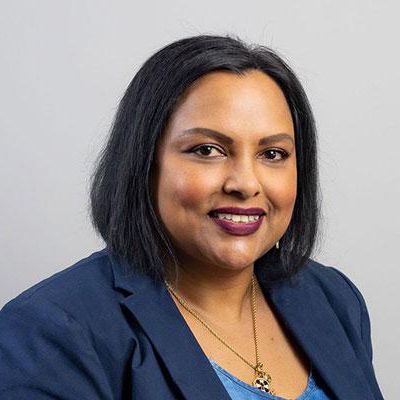For this year’s RSA security conference, only one of the 22 keynote speakers is a woman. This is certainly disheartening, but how surprised are you really? However, in the spirit of #PressForProgress, this year’s campaign theme for International Women’s Day, let’s approach this with a positive and proactive manner. Now is the time to lean in, speak up and shout out. Lean in, by supporting other women around you and encouraging them to participate in conferences. Speak up- make a case for your company to send you if needed and attend the conferences. Be engaged by meeting new people and participate on social media. Even better, maybe this is the year to shout out, and be a speaker yourself!
Dipping your toe in the water
Doing a talk may feel a bit intimidating at first, especially amongst developers, or people who don’t usually present formally to large groups of people as part of their job. However, there are many accessible and friendly first steps that can be taken before building up to a full-length conference talk.
For example, you may be able to find local tech events through meetup. These events can be of varying sizes, but their usually informal atmosphere means that they are ideal for first speakers. Some may even be advertised as women only, for example in Bristol, Scott Logic often sponsors Girl Geek Dinners.
Depending on where you work, you may even find informal opportunities to present to your colleagues- at Scott Logic, we often have study groups and informal lunchtime talks called “Brown bags” for people to practise presenting to an audience.
Conferences often have lightning talk sessions, which are another way “in”, as they are usually very short, and with less pressure. A great resource for finding tech conferences is the Women Who Code newsletter, which promotes upcoming speaker deadlines, events, ticket giveaways and promotional codes.
Time to dive in
Great, so now that you have committed to giving a talk, it’s time to prepare! Here are a few tips:
Tell a story
A good talk tells a story. Start with the end. What are the main points? What is your conclusion? Then, tackle the beginning and middle, making sure that they lead to the end and support your conclusion. It is worth taking a step back and making sure all your points fit together coherently, which they may not, even if all the individual bits link up. If you have slides, they should also support your message, not act as a prompt.
Practise, practise, practise
Once you have figured out your story, it’s time to practise it. Practise saying, either out loud, or in your head, and elaborating around your main points to make sure you really know them. Learn the flow of the slides.
Next, practise from beginning to end. It may seem pedantic, but using a stopwatch is a really useful tool. It enables you to know how long your talk will be and hence whether it will fit within the required time limit. It gives an ideal of what time certain points should be made, to help with time management during the talk. This means there will be no surprises on the day, causing a rushed conclusion or even worse, having to edit slides out on the fly! It also makes you hyper-aware of how fast you are talking. Personally, I find that this is a good imitation of on-the-day nerves and provides good practise for on-the-day voice control! Screen recording software may be useful as well, to measure how long each slide takes.
Prepare for the worst
This final point is aimed at those who want to show a live demo. Whilst this can add a lot of value to a talk, it is also quite risky. There are many factors at play that could cause it to go wrong. For example, the wi-fi may be slow, unreliable, or even unavailable. Mitigate this by having videos of code demos as a fallback. To add to this, talking and typing is remarkably difficult in front of an audience, so best avoided where possible!
Following my own advice
This is my pledge for this year’s International Women’s day. I will keep attending, presenting at, and promoting tech events to women this year. So, I will be speaking at Girl Geek Dinners in Bristol in April, and I’ve submitted abstracts for lightning talks at a few conferences too… fingers crossed!
#PressForProgress and make your pledge today!


